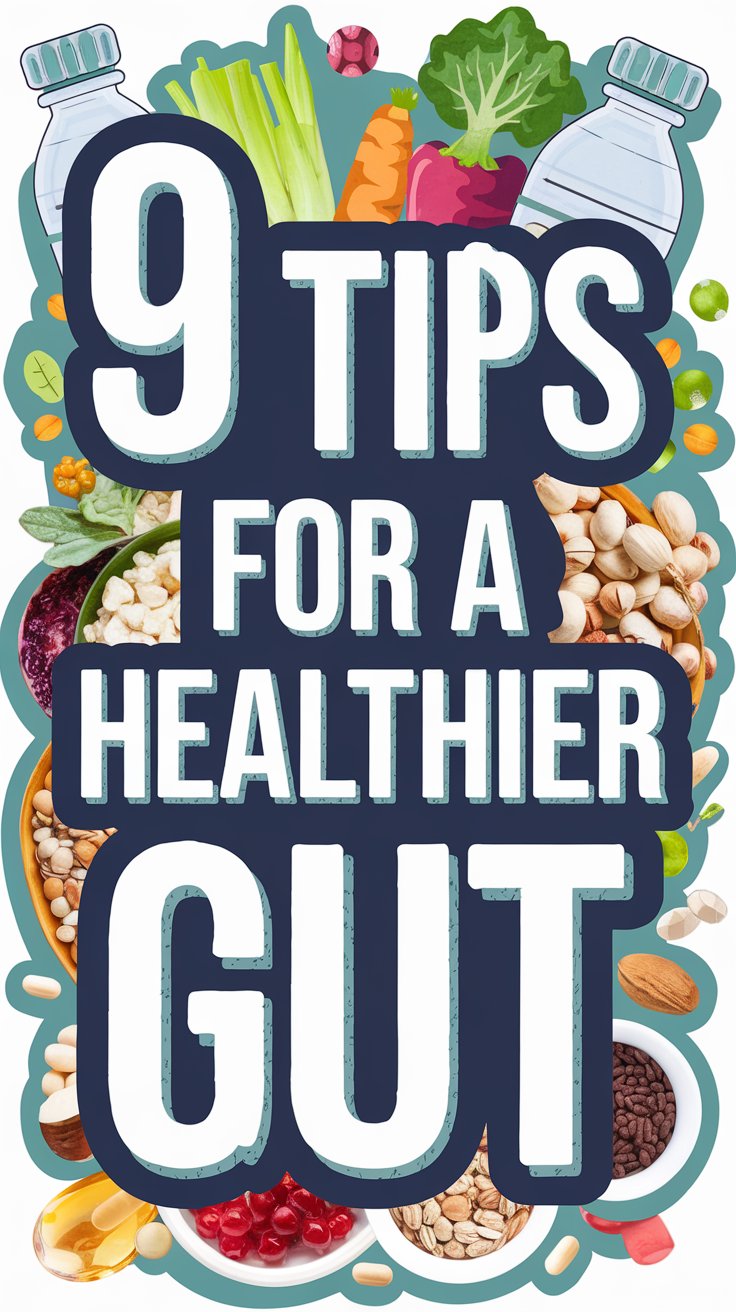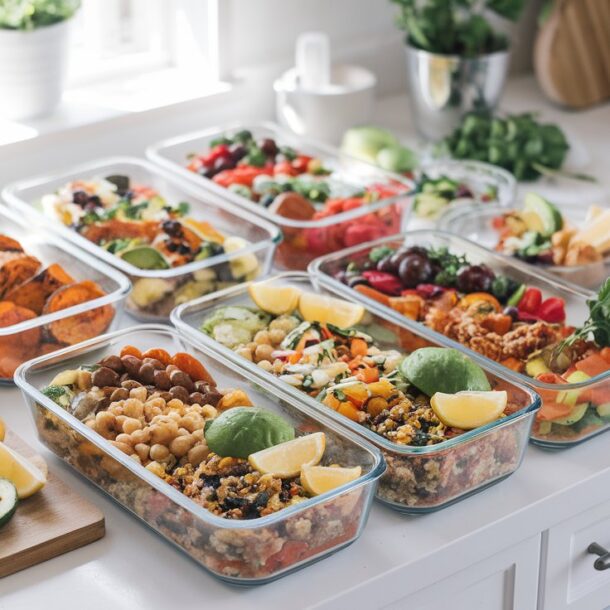
Please note: This website contains affiliate links. As an Amazon Associate, we earn from qualifying purchases at no additional cost to you.
Your digestive health is more than just a stomach issue—it’s the foundation of your overall well-being. From energy levels to immunity and even mental clarity, a healthy gut plays a crucial role in how you feel every day. If your goal for the new year is to feel your best, giving your gut some extra care is a great place to start.
Don’t worry, improving your gut health doesn’t require a complete overhaul of your diet or lifestyle. With a few simple changes, you can nurture your digestive system and set yourself up for better health all year long.

Here’s some super simple tips to start improving your gut health:
Eat More Fiber-Rich Foods
Fiber is a gut’s best friend. It helps keep digestion smooth, feeds healthy gut bacteria, and supports regularity. Focus on incorporating a variety of fiber-rich foods, like fruits, vegetables, whole grains, legumes, and nuts, into your meals.
Pro Tip: Start slow if you’re not used to eating much fiber. Gradually increase your intake and drink plenty of water to avoid bloating or discomfort.
Add Probiotics to Your Diet
Probiotics are beneficial bacteria that support a healthy gut microbiome. They can improve digestion, enhance immunity, and even boost mood. You can find probiotics in fermented foods like yogurt, kefir, sauerkraut, kimchi, and miso.
Quick Win: If you’re not a fan of fermented foods, consider a high-quality probiotic supplement tailored to your needs.
Picture This: A colorful bowl of Greek yogurt topped with fresh berries, a drizzle of honey, and a sprinkle of granola—an easy and delicious way to get probiotics.
Don’t Forget Prebiotics
Prebiotics are the non-digestible fibers that feed the good bacteria in your gut. Foods like garlic, onions, bananas, asparagus, and oats are excellent sources of prebiotics. Pairing these with probiotics can supercharge your gut health.
Pro Tip: Try adding sliced bananas to your oatmeal for a prebiotic-packed breakfast.
Stay Hydrated
Proper hydration is essential for digestion. Water helps break down food so your body can absorb nutrients more effectively. Aim to drink at least 8 cups of water a day, more if you’re active.
Quick Tip: Add a slice of lemon or cucumber to your water for a refreshing boost and extra flavor.
Reduce Processed Foods and Sugar
Processed foods and added sugars can disrupt your gut microbiome, promoting the growth of harmful bacteria. Minimize your intake of sugary snacks, sodas, and highly processed meals to create a more balanced environment for your gut.
Simple Swap: Replace sugary desserts with fresh fruit or dark chocolate for a healthier treat.
Practice Mindful Eating
Eating too quickly or while distracted can strain your digestive system. Practice mindful eating by slowing down, chewing thoroughly, and paying attention to your body’s hunger and fullness cues.
Pro Tip: Put your fork down between bites to pace yourself and enjoy your meal.
Manage Stress
Stress doesn’t just affect your mind; it can wreak havoc on your digestive system, too. Chronic stress can disrupt gut bacteria and slow digestion, leading to discomfort. Incorporate stress-reducing activities like yoga, meditation, or even a daily walk into your routine to support your gut health.
Picture This: A peaceful moment with someone seated on a yoga mat, sunlight streaming in, practicing deep breathing to reduce stress and promote gut health.
Get Moving
Physical activity isn’t just good for your heart and muscles—it also supports a healthy digestive system. Regular exercise helps stimulate intestinal muscles, keeping your digestion on track. Even a short daily walk can make a difference.
Pro Tip: Aim for at least 30 minutes of moderate activity most days of the week.
Prioritize Sleep
Your gut and your sleep are deeply connected. Poor sleep can negatively impact your gut microbiome, while an imbalanced microbiome can affect your ability to sleep well. Create a bedtime routine that encourages quality sleep, like limiting screen time, keeping a consistent sleep schedule, and ensuring your bedroom is a calming environment.
Quick Win: Try winding down with a cup of herbal tea, like chamomile or peppermint, which can also aid digestion.
FAQs
1. How long does it take to improve gut health?
Everyone is different, but many people notice changes within a few weeks of adopting healthier habits.
2. Can supplements help with gut health?
Yes, supplements like probiotics, digestive enzymes, and fiber can be helpful. However, they work best when paired with a healthy diet.
** FYI: Please always check with your doctor before taking new supplements, especially if you are on any other medications.
3. How do I know if my gut health needs improvement?
Common signs include bloating, irregular bowel movements, fatigue, or frequent illness. If these issues persist, consult a healthcare professional.
Conclusion
A healthy gut is the foundation of feeling your best, and the new year is the perfect time to give it the care it deserves. By making small but meaningful changes to your diet, hydration, and lifestyle, you can support your digestive health and enjoy the benefits of better energy, immunity, and overall well-being. Cheers to a healthier gut and a healthier you!
Please note: This website contains affiliate links. As an Amazon Associate, we earn from qualifying purchases at no additional cost to you.










